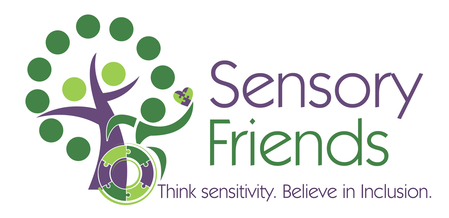
I’ve always known there were parents who have lost children, whether to illness, accidents, or disability and health issues, but it never occurred to me that there wouldn't be strong sources of support for them. Where do parents of children who have passed on due to their lifelong disabilities go to get help? Who could possibly relate to them and their pain? Yes, the obvious answer to this question would be to speak with other families of similar circumstances. Just think about this for a moment. How many parents do you know lost their child? How many of those parents lost a child with disabilities? These thoughts led me to begin researching the topic. There isn't a whole lot of support for parents who have lost their children in the disability community. Please, let me be clear. There is support for parents who lose their children to cancer, car accidents, etc. What about the parents of children with disabilities who lose their children to life-long disabilities? The sad truth is that children and people with disabilities are often times viewed as burdens as opposed to members of their community who have intrinsic value. Parents, grieving the loss of their beloved child, have had to listen to the following thoughtless comments:
- “Well, you had to have been expecting it for some time now.”
- “At least she is not suffering anymore.”
- “Now you and your family can move on with a normal life.”
- “It was probably for the best, he didn’t really have a quality life.”
- “You must be relieved. You’ve been living your life for this kid, never really having a life of your own.”
If you’re shocked by these comments, that's good, you should be. No parent wants to hear this nonsense, and it’s all completely untrue.
Please note that if any of these statements sound like something you might say to a parent in these circumstances, I beg you to please stop yourself and think about what you’re saying. All children and people have value. All children and people have someone who loves them and considers them to be their world. You would think these statements would come from strangers or well-intentioned acquaintances, right? Well, family members are just as guilty of saying these things as well.
In my quest for more information, I learned about the many types of grieving situations, sadly, experienced by parents. Families need so much care and nurturing long after their child has passed, and I never realized how few sources of support existed.
I found support groups for the following:
· Parents of children who went missing, never to be seen again.
· Parents of children who suffered fatal car accidents.
· Parents of children who died due to cancer or other terminal illnesses.
· Parents who have lost their child to a miscarriage, still birth, or neonates (shortly after birth).
· Parents who lost their child due to a violent murder.
· Parents who have had abortions.
· Parents whose only child has died.
· Parents who lost their child to overdose and substance abuse.
· Parents who lost their child to suicide.
There was no mention of support for parents of children with disabilities in this list. I have provided some resources on the information I found at the end of my article, but if you’re a professional who assists grieving families, please consider this very special population of parents. They have dealt with isolation, segregation, and deprivation of services their child was entitled to - throughout their child’s entire life. They too deserve to grieve in peace with the memory of their child’s dignity and purposeful life intact.
http://www.grieving-parents.com/
http://www.compassionatefriends.org/home.aspx
http://seleni.org/advice-support/article/grieving-when-you-have-a-child-with-special-needs
If you know of a support group for grieving parents of children with disabilities, please share it with us so we may pass it on to others.
This is written in love and dedication to the Montalvo family.

 RSS Feed
RSS Feed